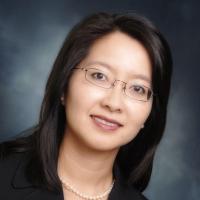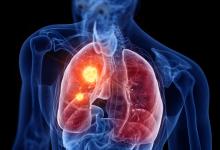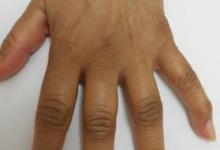Redefining Aging Save

One of my favorite patients is a lady who is 79 years old. She came to me due to complaints of pain. She had been highly active, going ziplining with her husband who is 75 years of age, in multiple countries across the world. She had to curtail her adventures due to progressive pain. She sought medical attention from many providers; many told her that “it’s your age,” “look at your x-rays; there’s a lot of arthritis,” and “of course you’re going to hurt, you’re 79!” She did not accept her lot and kept seeking someone to help. When she came to me, she was downtrodden and depressed. As she related her story - severe pain in her neck, shoulders, low back, hips that has limited her mobility - I examined her. She did have bony hypertrophy of her knees, limited range of motion in her shoulders and hips, and some kyphoscoliosis.
Despite chronic changes, I thought it was odd that she did not complain of her symptoms until more recently. I obtained labs and noted that her erythrocyte sedimentation rate (ESR) was 43 mm/h with a normal C-reactive protein, blood counts, thyroid, and chemistry profile. While the ESR was acceptable when corrected for her age, I gave her a trial of low dose prednisone for suspected polymyalgia rheumatica. Within 24 hours, she called me and sounded like a child in a candy store; her pain had improved by 99 percent. She just booked her trip to Toro Verde Nature Adventure Park.
I highlight her case because we often undertreat or attribute our older patient’s symptoms to aging. Attention is often diverted to younger patients who might have longer to live and contribute to society in different ways, but I argue that our older patients deserve the attention and care to achieve their goals in life. A Ms. Harriette Thompson, a cancer survivor, completed her 15th marathon at age 91; she broke her own record and finished the race in 7 hours, 7 minutes, and 42 seconds; she ran her first marathon at age 76. Mr. Wang Deshun rocks runways showing off his physique at age 80. Sister Madonna Bruder competed in the ironman competition which involves a 2.4-mile swim, a 112-mile bike course, and a 26.2-mile run; she completed over 45 races with a lot of prayers!
Age is truly just a number.
I was thrilled that the American College of Rheumatology put together the Community Aging Hub and multiple sessions to help rheumatologists identify gaps in care for older patients with rheumatic diseases. My friend and colleague, Dr. Una Makris, taught me the 5 M's of aging that should be assessed in our patients:
- Multicomplexity: multiple chronic illnesses, nuanced by complex biopsychosocial needs
- Mind: mentation, dementia, delirium, depression
- Mobility: function, gait, fall assessments
- Medications: polypharmacy, adverse effects, optimization
- What Matters Most: understand the patient’s preferences and goals
The 5 M's are not hard to incorporate into clinical practice during routine patient assessments. We should be deliberate and proactive to optimize the quality of life for our patients and minimize toxicity. Aging should not be treated like a single entity like other rheumatic diseases such as lupus, rheumatoid arthritis. It affects all our patients regardless of what disease they have. Aging is inevitable.
Because of lack of attention to this field of medicine, many rheumatologists tend to undertreat older adults and rely on prednisone monotherapy. More studies are needed to evaluate clinical outcomes of patients who are older and have unique needs.
Do our paradigms in younger patients still apply to older patients with multiple comorbid conditions, polypharmacy, or cognitive impairment? Is tight control too tight? Is triple DMARD therapy safer than a biologic in nonagenarian? Are labs as accurate in predicting or monitoring disease? We need more clinical trials that include older adults because we are all guessing and extrapolating based on data in younger adults.
The conversation has started, will you join? To learn more about managing rheumatic diseases in older patients, please join #gerirheum at ACR and join the Aging Community Hub, or email gerirheum@gmail.com. To prepare the Rheumatology work force to optimally care for our aging patients, it will be important to develop educational materials that cover core aging principles, tailored for the rheumatologist. Information on the 5 M's can be found at https://www.healthinaging.org/tools-and-tips/tip-sheet-5ms-geriatrics.










If you are a health practitioner, you may Login/Register to comment.
Due to the nature of these comment forums, only health practitioners are allowed to comment at this time.